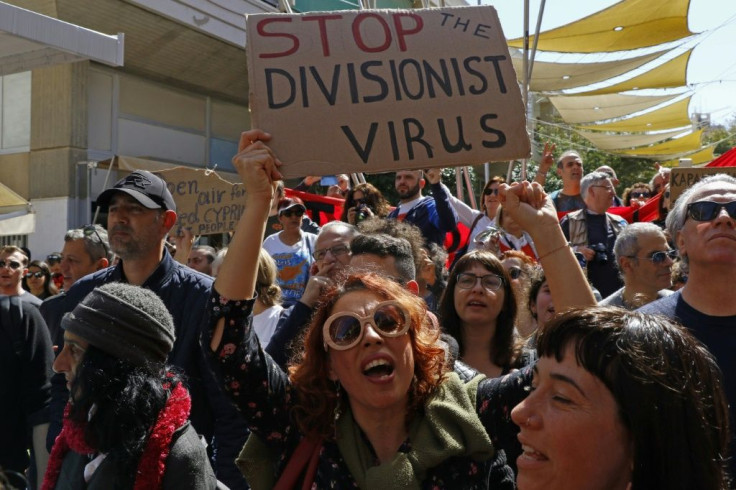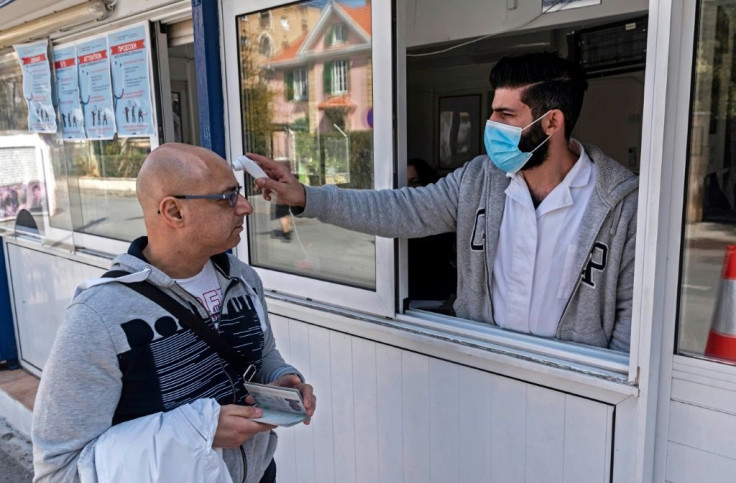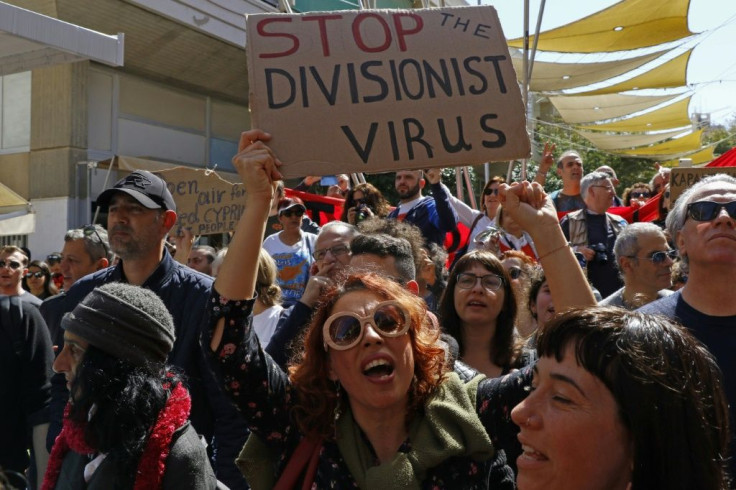Cyprus Shutters Schools, Locks Down Hospitals Over Coronavirus

Cyprus said Tuesday it was closing schools in the capital, banning mass gatherings and locking down two major hospitals to combat novel coronavirus, after three people on the Mediterranean island tested positive for the illness.
The Republic of Cyprus had on Monday reported its first two cases of the disease, including the chief heart surgeon at its biggest hospital.
And on Tuesday, the Turkish-controlled north of the island announced the first case there, a 65-year-old German woman.
Cyprus is divided between EU member state the Republic of Cyprus and the northern third controlled by the breakaway Turkish Republic of Northern Cyprus (TRNC), which is recognised only by Ankara.
The Republic of Cyprus' health ministry said all schools in the capital Nicosia would close for three days as a precaution against the virus.
Even before the first confirmed cases, fears over a spread of novel coronavirus had caused frictions between the north and south and sparked angry protests after the Republic of Cyprus on February 29 closed four of the eight checkpoints on the line dividing the island, initially for a week.
On Tuesday, the Republic of Cyprus' health minister, Constantinos Ioannou, extended the closures and announced a series of other measures to stop the virus spreading.
The four crossings would now remain closed until March 18, he said. The other four crossings will remain open.
"All mass events, gatherings, concerts, parades in public places including football and other games are cancelled," Ioannou told reporters after a four-hour cabinet meeting to discuss the virus.

The ministry said it had locked down Nicosia General Hospital for at least 48 hours to carry out a "deep clean", after the facility's head of heart surgery tested positive for the novel coronavirus following a trip to Britain.
It instructed people to self-isolate if they had come into contact with the doctor or travelled to countries affected by the virus in the past two weeks.
Limassol General Hospital, the country's second-largest public health facility, will also suspend operations for 48 hours from Wednesday to investigate three suspected coronavirus cases, health authorities said.

One of the suspected cases is someone who came into contact with the Nicosia hospital heart surgeon, a health official told the Cyprus News Agency.
Urgent cases will still be admitted to the Limassol hospital's accident and emergency department, but all scheduled outpatient appointments, admissions and surgeries have been suspended.
Ioannou told private radio station Politis that 152 samples had been sent for testing from patients and staff at the Nicosia hospital who came into contact with the infected doctor.
The other confirmed case in the Republic of Cyprus is a 25-year-old male citizen who had recently returned from a trip to Milan, Italy, officials have said.
Nicosia also stepped up containment measures Tuesday that had previously covered arrivals from Hubei province in China, Italy, Iran and South Korea.
It asked people to self-isolate at home for 14 days if they have recently been to other areas of China, or if they had visited Japan, Hong Kong, Germany, France, Spain, Greece or Britain.
Gatherings of more than 75 people in a confined space are also banned, including church congregations, which usually rise in the run-up to Greek Orthodox Easter.
The tourist who tested positive for coronavirus in the breakaway Turkish Republic of Northern Cyprus on Tuesday had arrived on the island from Balingen in Germany on Sunday, authorities in the north said.
She was among a 30-member tourist group that was staying at a hotel in the coastal city of Famagusta, Turkish Cypriot health minister Ali Pilli told reporters.
The woman was taken to a hospital in northern Nicosia after complaining of high fever and put under quarantine while the hotel was in lockdown, he added.
Turkish Cypriot leader Mustafa Akinci had criticised the closures of checkpoints, calling the move "unnecessary" and politically-motivated, but Cypriot President Nicos Anastasiades insisted the decision was taken "based on scientific data".
The United Nations voiced concern over "disruption" caused by the temporary closure of the crossings, urging both sides to cooperate.
© Copyright AFP 2024. All rights reserved.





















